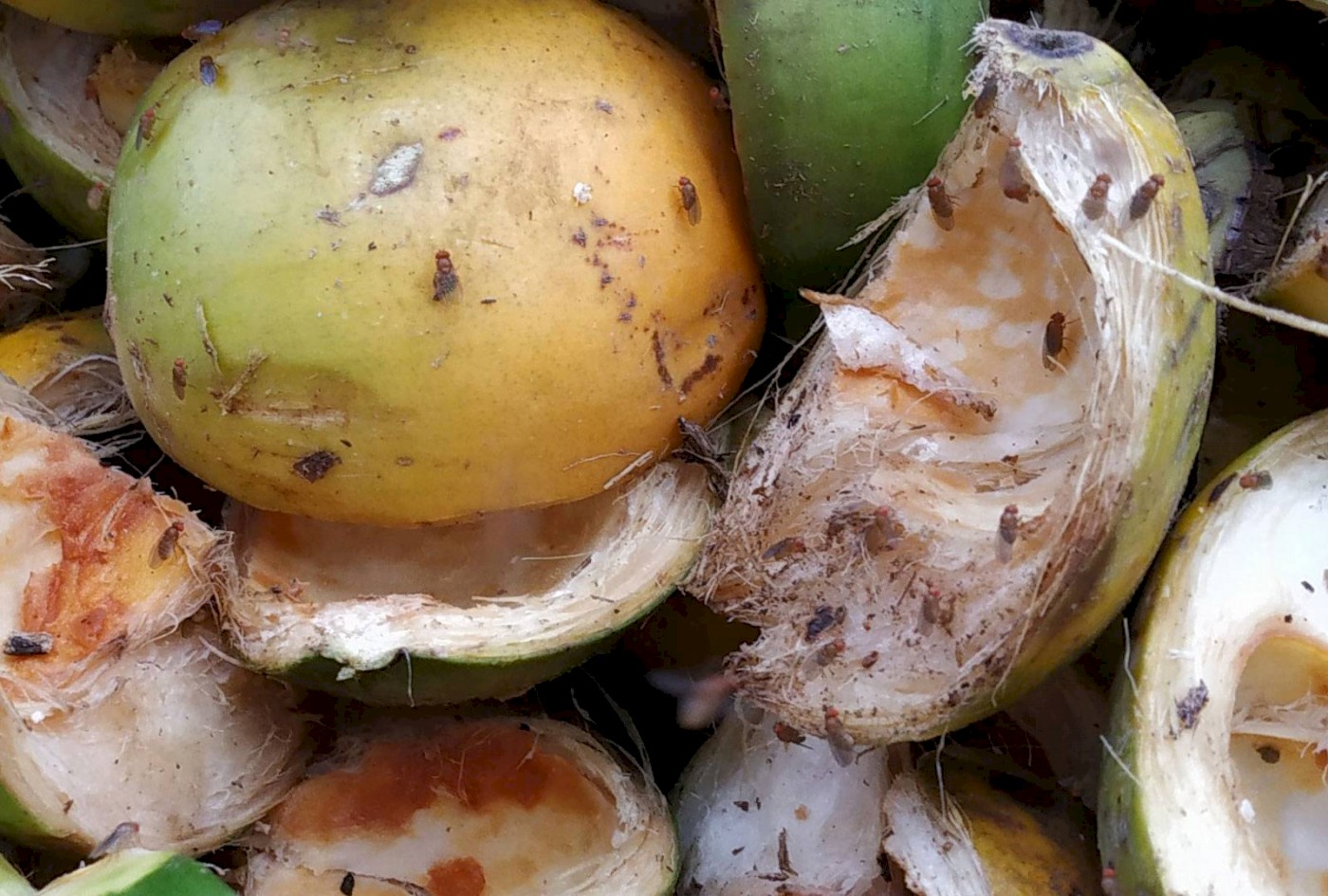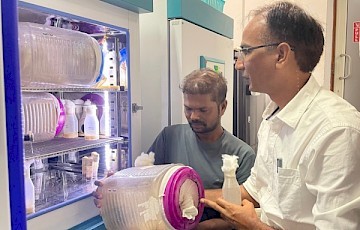9 July 2021
EEE Lab at Ahmedabad University: Impact of climate warming on Drosophila's (fruit-fly) reproduction and population.

Too hot to handle: High temp hits mating, reproduction in fruit flies
If the current hot and humid weather is making Amdavadis uneasy, a new research from the Ahmedabad University pointed that rising temperatures due to climate change may be a life-and-death matter for the tiny insects who are highly susceptible to the hit shocks. Two recently-published studies claimed that when the fruit flies were exposed to high temperatures and less precipitation, it resulted in a drop in mating and egg production and eventually their population.
Professor Subhash Rajpurohit, principal investigator of the Experimental Ecology and Evolution Lab (EEE Lab) at Ahmedabad University, said that two of their recent studies by the students focused on Drosophila, commonly known as fruit fly, and their response to the climate warming.
The studies were carried out at the EEE lab and outdoor experimental station at the Ahmedabad University in specially created mesocosm enclosures. The results pointed at low egg-laying rates and lower reproduction rates vis-à-vis increase in temperature.
“Unlike humans, who have a heat-regulation mechanism, insects are ectotherms (varying body temperature with ambient temperature) and lose water quickly due to large surface area. Thus, even a small increase in temperature could be severe for them – they undergo severe dehydration as water start escaping through their body surface,” said Professor Rajpurohit.
One of the studies took place at the Ahmedabad University campus where the fruit flies were kept in outdoor units and their fecundity (ability to reproduce in abundance) was observed over 90 days during the Ahmedabad summer.
“With rise in temperature, we observed that the egg-laying rate dropped for the flies. The relative drop in humidity also affected their fecundity as the insects felt the stress,” said Rajpurohit.
The second study, titled ‘No water, no mating: Connecting dots from behaviour to pathways,’ took the research further. The teams tested flies on reproductive parameters at varying body water levels.
In the Box: FRUIT-FLIES & HUMAN CONNECT
- Experiments with fruit flies are significant as 65-75% of its genes causing health issues match with the ones in humans. Hence, their study can indicate a possible implication for other higher order animals and humans.
- Understanding the impact of climate change on insects is relevant as the entire farming industry is dependent on insects helping with pollination.
- If the insect population gets depleted, the food chain gets disrupted.
To read the article, please click here



